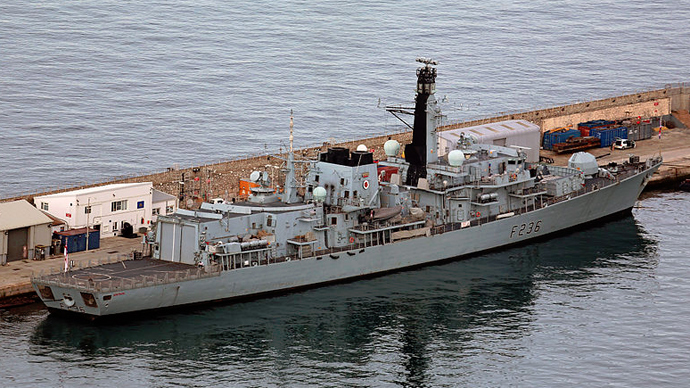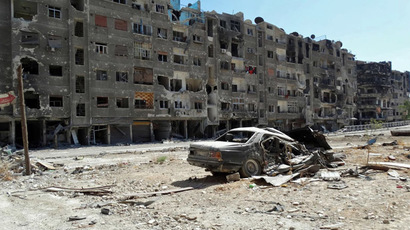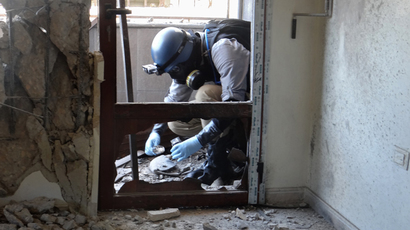UK pledges $4mn in equipment to speed up destruction of Syria chemical arsenal

The UK has outlined plans to provide Washington with some $4.1mn worth of equipment, which would enable the US to process Syrian chemical weapons, currently in transit from the country, more quickly. A British warship will join the escort protection.
“The US approached the UK to support this primary activity from our domestic industry as they would not have been able to procure the device themselves within the timeframes set,” British Defense Minister Philip Hammond said in a written statement to Parliament on Monday. The British aid will speed up the destruction process.
Foreign Secretary William Hague confirmed that the UK would be assisting the US in a statement made to the House of Commons on Monday, while lauding the effort as a "strong example of international cooperation".
A significant portion of “priority chemical materials” are due to be destroyed on board a US vessel. The cargo ship, MV Cape Ray, is expected to reach the coast of Italy within the next couple of weeks, where it will receive the load to destroy in international waters.
The first load departed the Syrian port of Latakia on a Danish ship on January 7. The departure missed its deadline: the first chemical consignment out of Syria was initially set for December 31. The delay was due to “war, bad weather and bureaucracy,” according to an OPCW official.
‘Naval escorts’ from Russia, Denmark, Norway and China are being provided to ensure the safe transit of chemical weapons through international waters. On Monday, Hague also announced that British naval ship HMS Montrose would be participating.
The deadline for the full destruction of the arsenal is the end of June this year.
The actual work on the destruction of the first load could probably take 45 days under ideal conditions, but the mission is now expected to last about 90 days because of bad weather.
Syria agreed to the destruction of its chemical weapons by June through a deal brokered by Russia, which defused Washington’s intention to use military force against Syria.
The deal followed a sarin gas attack on August 21 that western nations accused President Bashar Assad of orchestrating. Syria says that rebels were responsible for the use of chemical agents.
‘A greater appetite for solution on Syria’
In addition to confirming that HMS Montrose would be joining the naval escort, Hague observed a “greater appetite for solution in Syria” by outside powers, than there might be within the minds of some people inciting violence within the country. However, he added that he was under no illusion as to how challenging the process of ending the violence would be.
Hague mentioned that discussions with Russia are “important to pursue”. He expressed a desire for the opposition to attend Geneva 2 talks on January 22, while stating that it was necessary for Russia to assist in bringing the Syrian government to the talks in “the same spirit.”
“A transitional governing body is no easy thing to bring about in any county,” he observed. Hague went on to mention that both Geneva 2 and ensuring the improvement of humanitarian access had been on the agenda as US Secretary of State John Kerry, his Russian counterpart Sergey Lavrov and the UN’s special envoy to Syria, Lakhdar Brahimi, all met in Paris on Monday.














